Best Sonos speakers and soundbars 2025, as rated by our expert reviewers
The top Sonos speakers and soundbar options ranked
We've tested all of the best Sonos speakers over the years, with many of them featuring in our roundups of the best wireless speakers and best soundbars you can buy. Our guide below features only the best Sonos speakers and soundbars for different needs and budgets, based on our rigorous in-house testing methodology.
But we're not about to sugar-coat it: Sonos hasn't had the best few months. In fact, you could say that last year, Sonos' multiroom audio crown started slipping, beginning with the relaunch of its app in March, which angered customers owing to fan-favorite features having gone missing. Sonos spent most of 2024 fixing it, reportedly delaying other products as a result and ultimately parting ways with its CEO Patrick Spence by the second week in January.
Here's the thing though: Sonos speakers still rank among the best portable Bluetooth speakers going. They're also some of the best-sounding wireless speakers, soundbars and home audio systems we've ever heard. And with former Pandora (the music-streaming service) exec Tom Conrad stepping in at the helm, albeit temporarily, the future looks bright for Sonos. After all, it has been reported that Conrad literally wears his love for Sonos on his sleeve, with a prominent tattoo of the Sonos Ace headphones on his arm…
What you need to know is this: all Sonos speakers are wireless and now, they're all compatible with each other, which makes them an easy choice for multi-room audio setups that avoid cables, whatever your budget. Also, while a Sonos soundbar on its own will upgrade your TV's audio, add the company's speakers and subwoofers (you can do it over time, this isn't a race) and you'll seriously up the immersive experience in movies. Which ones should you buy? That's all in the guide below…
The Quick List
Get stuck in right away with our easy-to-browse list of the best Sonos speakers for different needs. You can click to instantly jump to more full write-up of each model.
Best for most people
This small(ish) and flexible speaker offers great detail, clarity and volume, with plenty of connectivity options. The ideal all-rounder, for a good price.
Best portable Sonos
A classy portable, waterproof speaker with powerful bass and excellent connectivity, including both Bluetooth and Wi-Fi, so it works like a regular Sonos home speaker.
Best mid-range soundbar
A small yet powerful option with Dolby Atmos and a wide soundstage. Perfect to boost the audio of your TV, but also fits well with the Sonos ecosystem as a music player.
Best for spatial audio
A high-quality, super flexible speaker with Dolby Atmos effects offering rich and detailed audio that fulls a room. There are good connectivity options, including Bluetooth.
Best Dolby Atmos soundbar
If you want to boost your TV's audio with an impressive, premium Dolby Atmos experience, get the Arc Ultra. It's an all-in-one soundbar offering dynamic and powerful sound.
Premium and portable
A portable speaker that pumps out well-detailed and finely balanced sound with plenty of volume. It's a great home speaker, with bonus 24-hour battery and waterproofing.
Load the next products...
Best for hi-fi sound
If you want Bluetooth or portability, look elsewhere. But this is the option for those who want to focus on expansive, hi-fi-like, room-filling sound. It has a 3.5mm line-in, too.
Best cheap soundbar
A nice-looking soundbar offering big and well-balanced sound, especially considering its compact size and affordable price – at least as far as Sonos tech is concerned.

I've been testing and reporting on cutting-edge audio products since 2012, including many of the break-out wireless speaker systems over the last decade. I've tested nearly ever Sonos speaker over the the last few years, and have used all of Sonos' current soundbar range – and I had a Sonos surround system at home for several years. I've used my experience to put together this guide, working with our other AV editors and reviewers.
Recent updates
24 January, 2025
Added the Sonos Arc Ultra to replace the original Sonos Arc as 'best Dolby Atmos soundbar'. Updated the guide's introduction to reflect Sonos' recent CEO update. Updated the 'also consider' section to note the original Arc's 'last chance' status. Finessed the Sonos Roam 2 entry to reflect recent updates.
The best Sonos speakers of 2025
Why you can trust TechRadar
Below you'll see our full write-ups for each of the best Sonos speakers in our list. We've tested each one extensively, so these recommendations are based on real-world experience.
The best for most people

Specifications
Reasons to buy
Reasons to avoid
The Sonos Era 100 is one of the newest Sonos speakers alongside the Sonos Era 300. Rather than offering the best in spatial audio and immersive sound like the Era 300, the Era 100 is cheaper, smaller and designed to replace the Sonos One – which was at the top of our list, but has been discontinued (if you see any for a great price, consider snapping them up!).
The Sonos One is such a fantastic speaker and the Era 100 has a lot to live up to. That's why it targets everything about the Sonos One that could do with an improvement. The Era 100 has a wider soundstage and more bass, which means a fuller dynamic range. It also adds Bluetooth, allowing you to play music to it from any wireless device and there's an adapter to add 3.5mm line-in, so you can connect to wired music sources.
These improvements are welcome, but if you already have a Sonos One, don't add up to being too much of an upgrade, so you should probably stick with the old speaker. But in the context of the current Sonos line-up, the surprisingly amount of power, the strong detail and clarity, and compact size make this a great choice for the vast majority of people.
Read our full Sonos Era 100 review
The best portable Sonos
Specifications
Reasons to buy
Reasons to avoid
The Sonos Roam 2 is the best portable Sonos speaker for most people, thanks to its more affordable price and smaller size, compared to the Sonos Move 2. It delivers powerful sound from a rugged design, with excellent connectivity features and a nice dose of smart home control.
Priced at $179 / £179 / AU$299, the Sonos Roam 2 is the cheapest way to buy into the Sonos ecosystem, although we should note that this isn't cheap compared to the best Bluetooth speakers, but the Sonos Roam comes with a few extra tricks up its sleeves compared to those – as you'd expect from a Sonos device.
With both Bluetooth and Wi-Fi connectivity, the Sonos Roam 2 works as a go-anywhere speaker as well as part of your wider multi-room Sonos system – and with Alexa onboard, it doubles up as a smart speaker too.
Obviously, the sound here isn't as good as Sonos' larger and more expensive speakers, but we said that it offers "excellent sound that punches far above the sheer size" in our review. You get fulsome bass, and enough detail to let songs express themselves, even at relatively high volume – there's very little distortion.
In spite of its (relatively) low price, you’re getting a lot for your money here – and it's a great way to delve into the Sonos ecosystem for first-timers.
Read our full Sonos Roam 2 review
The best mid-range soundbar


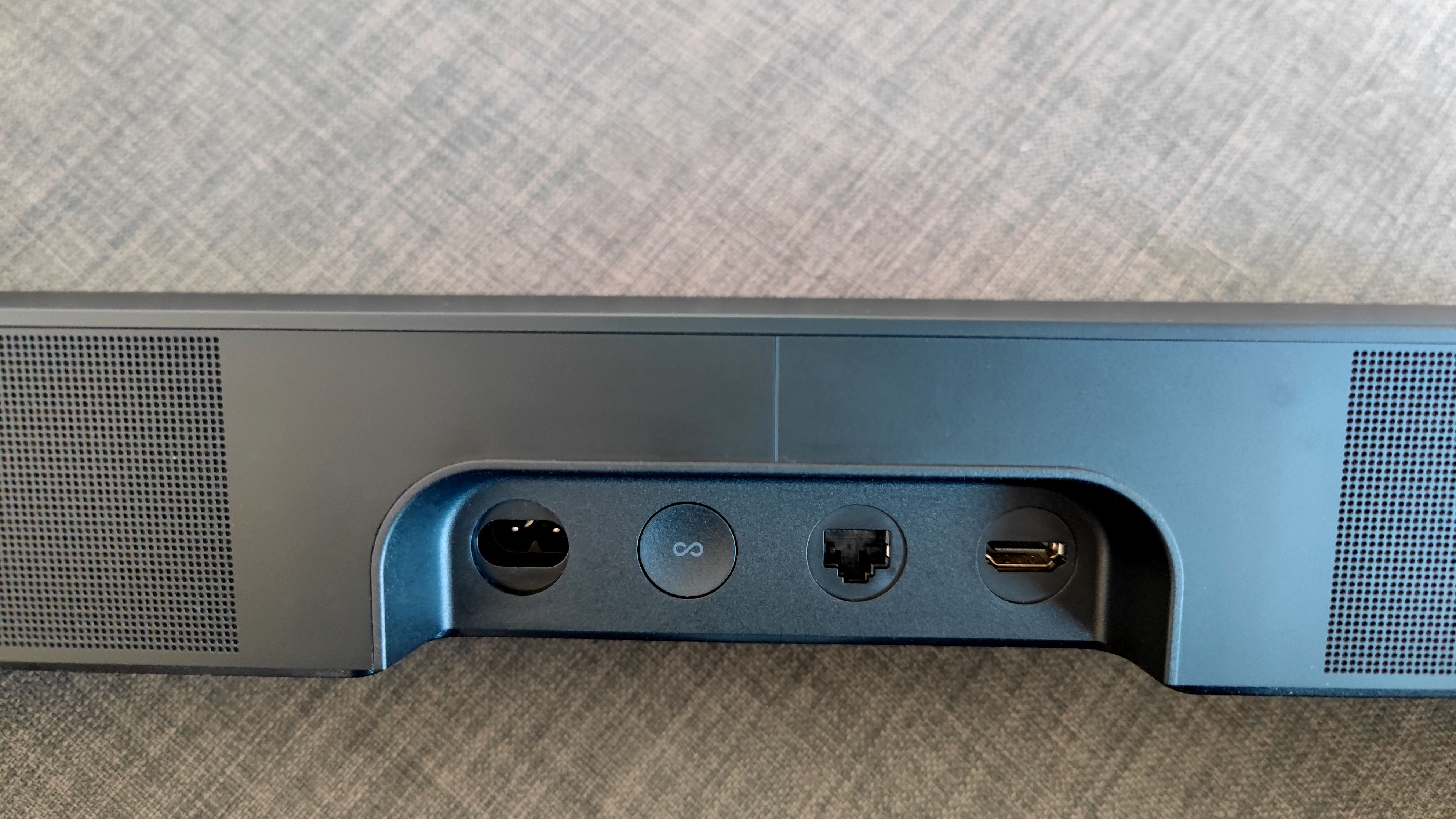
Specifications
Reasons to buy
Reasons to avoid
If you're tight on space, the Sonos Beam (Gen 2) is the best soundbar you can buy from Sonos, as well as the best mid-range choice if you want to invest in a soundbar but not go as cheap as the Sonos Ray or as premium as the Arc.
Its compact size means it will easily slot beneath your TV, whether you pop it on a TV stand or mount it to your wall, and its sleek design means it won't look out of place with your decor.
It improves on the company’s original Sonos Beam soundbar with virtual Dolby Atmos, HDMI eARC compatibility, and a refreshed design.
While it doesn't have the upfiring tweeters necessary for 'true' Dolby Atmos (resulting in a sonic height less impressive than that of the Sonos Arc), the Sonos Beam (Gen 2) still boasts a wide soundstage and an immersive audio performance.
HDMI eARC compatibility allows for hi-res audio streaming, making it ideal for listening to music, too. For a small soundbar, it's got a surprisingly solid amount of bass to it, though it's far from having the same nuance and power that a subwoofer delivers – the soundbar can fill a surprisingly large space, but the bass is where you'll feel it lacking in energy a little.
Still, if you want super-clear, cinematic sound from a smaller soundbar, the Beam 2 is a superb choice, and handles music far better than most non-Sonos soundbars.
Read our full Sonos Beam (Gen 2) review
The best for spatial audio
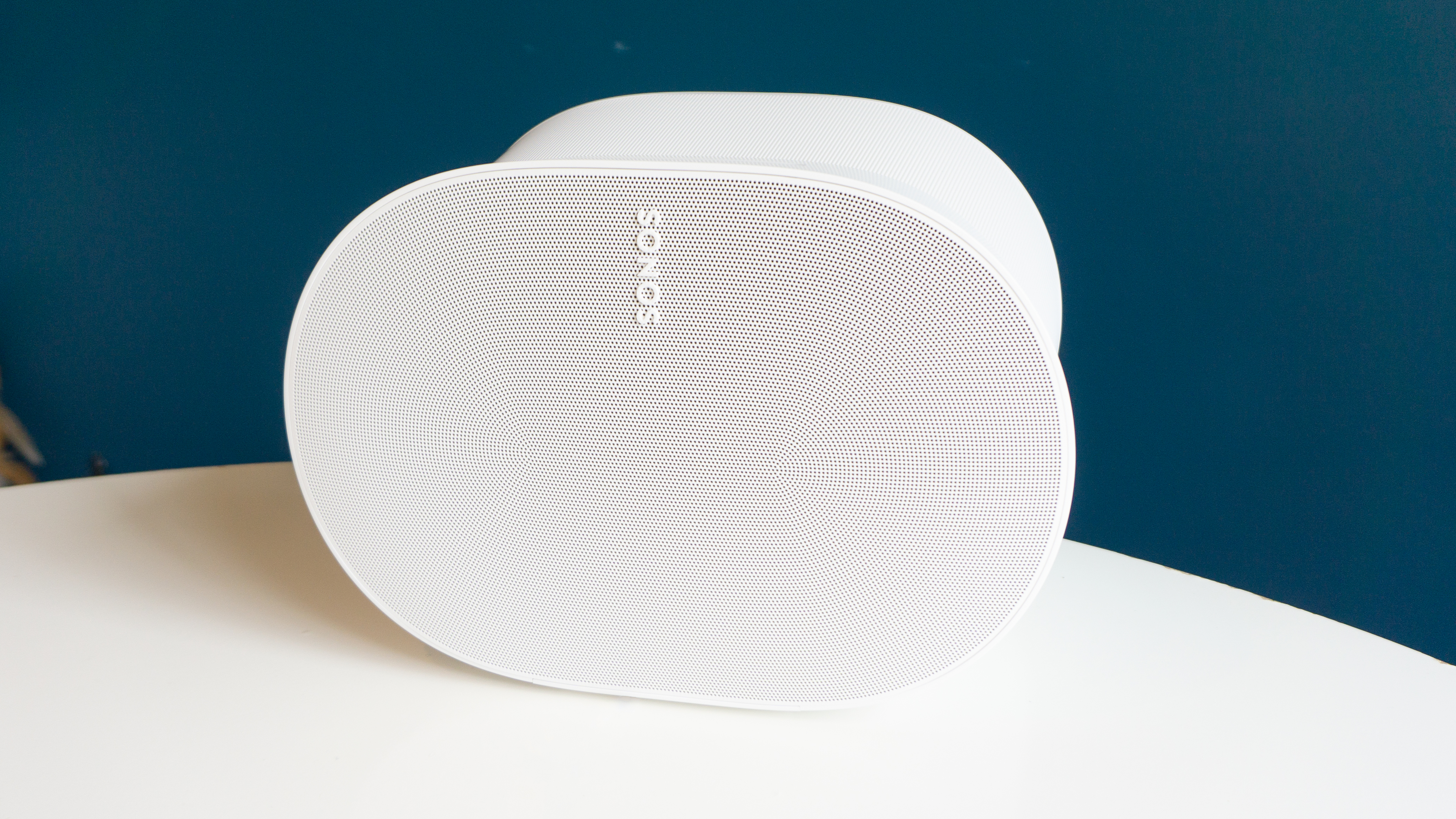
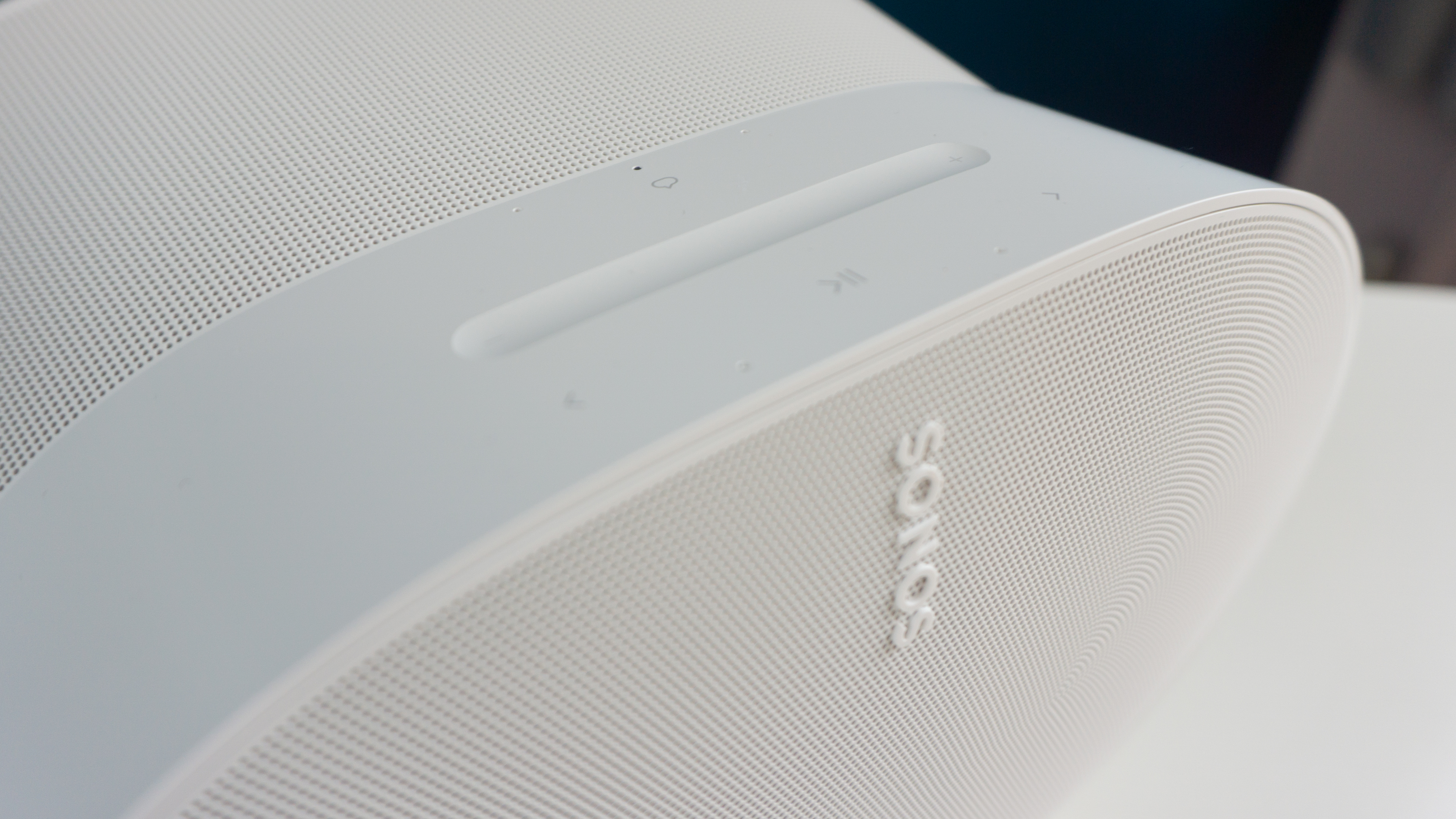
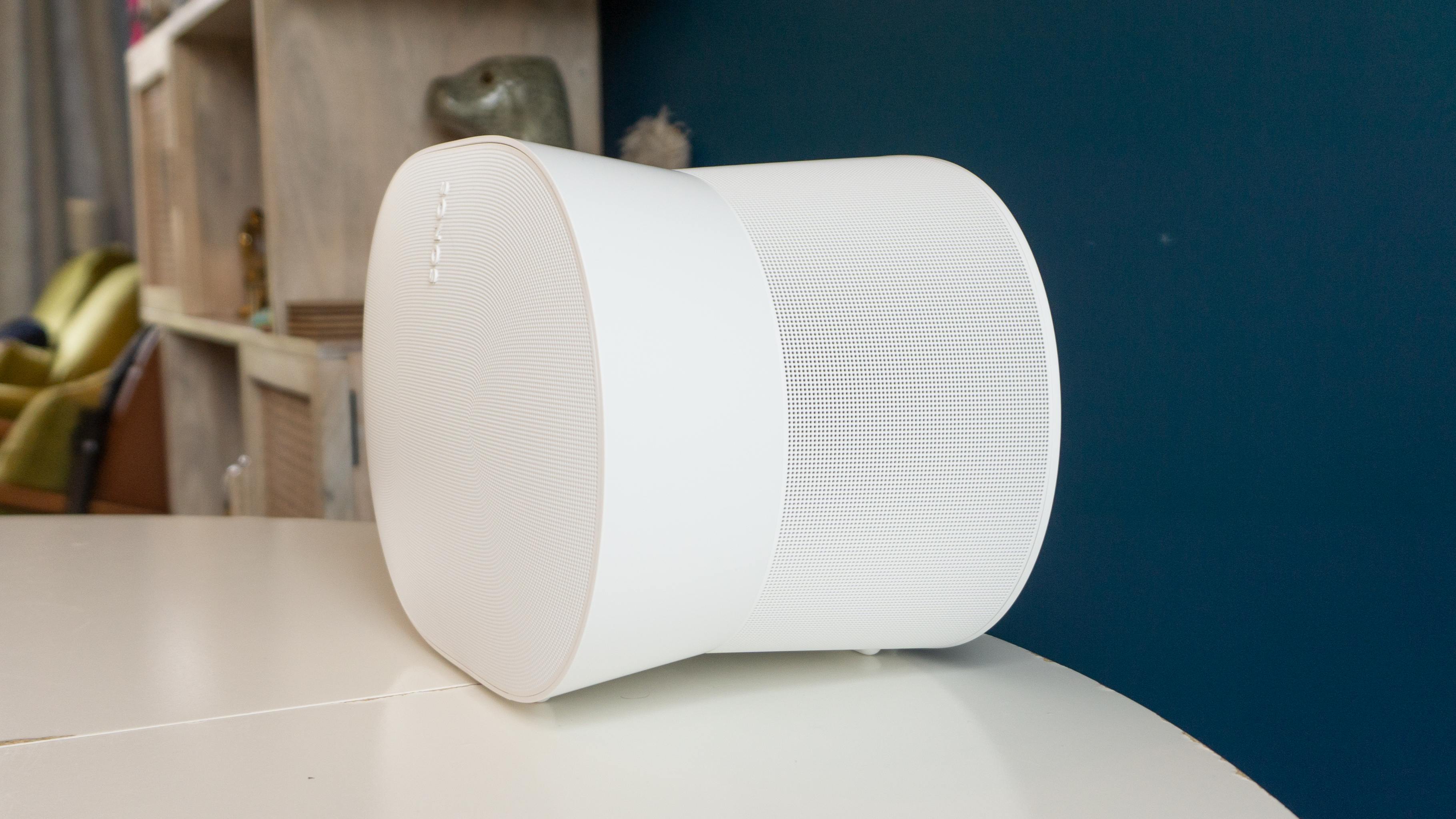
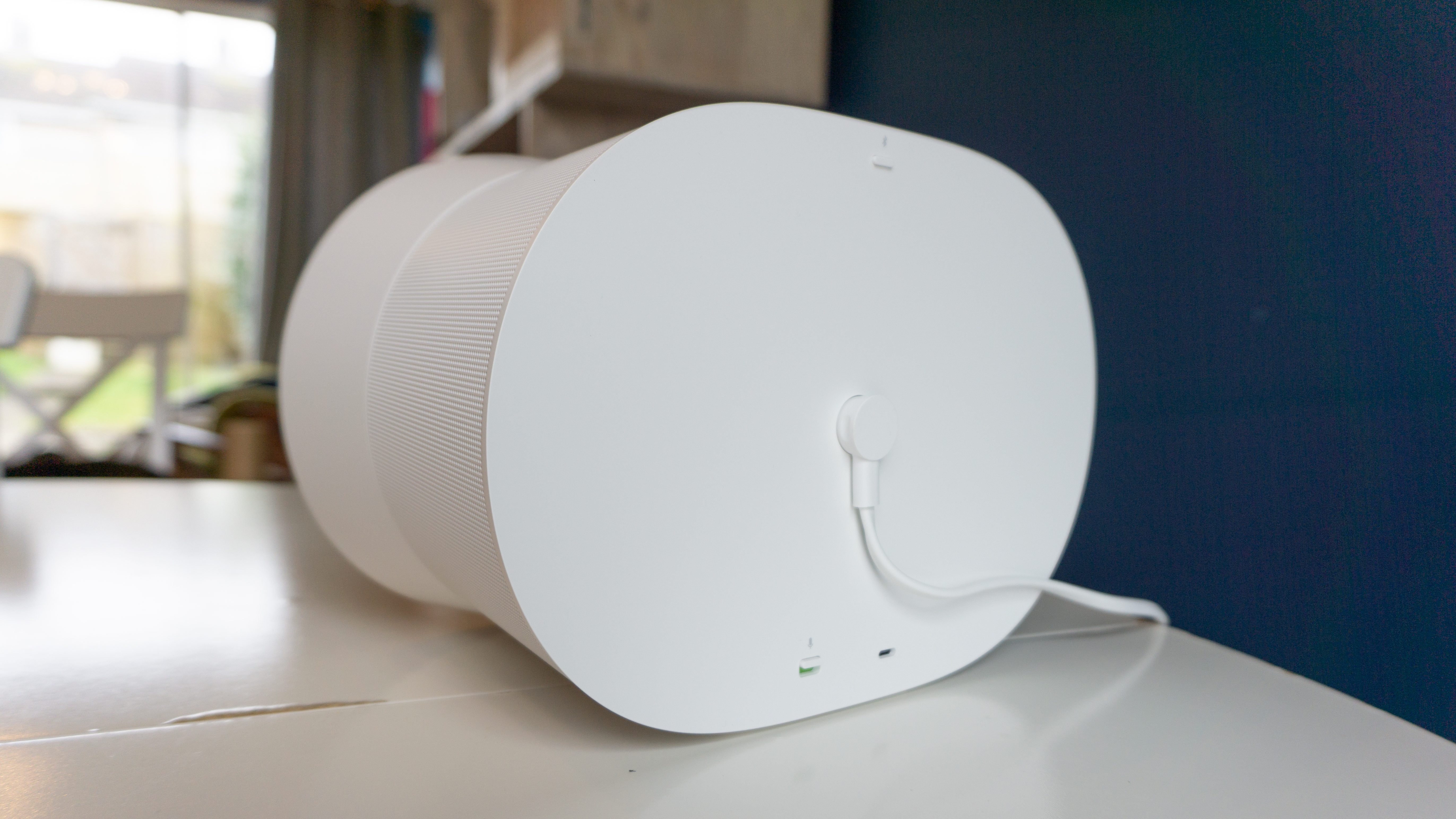
Specifications
Reasons to buy
Reasons to avoid
The Sonos Era 300 is the first speaker from the company with Dolby Atmos support (although not the first soundbar, we’re looking at you Sonos Arc). It has up- and side firing speakers, which create spatial audio.
This is a premium speaker through and through. At $449 / £449 / AU$749 it isn’t cheap, but during our testing we commented that we’ve tested more expensive wireless speakers, making the Era 300 good value in our books. This is largely down to the fact you get an array of drivers and processing skills.
In our Sonos Era 300 review we wrote: “it delivers more expansive sound than any one-box speaker I've heard to date – even with just stereo music, there's such a clear sense of left and right channels feeling separate and distinct.” This is why the Sonos Era 300 is our top pick if you’re look for immersive, spatial audio in a Sonos speaker design rather than a soundbar. The speaker doesn’t just offer fantastic height and a wide soundstage, but offers a rich, detailed and powerful sound.
Bluetooth works well and makes the Sonos Era 300 more accessible for more of your devices. There’s also Hi-Res support from compatible devices too, which is a welcome addition.
Read our full Sonos Era 300 review
The best Dolby Atmos soundbar
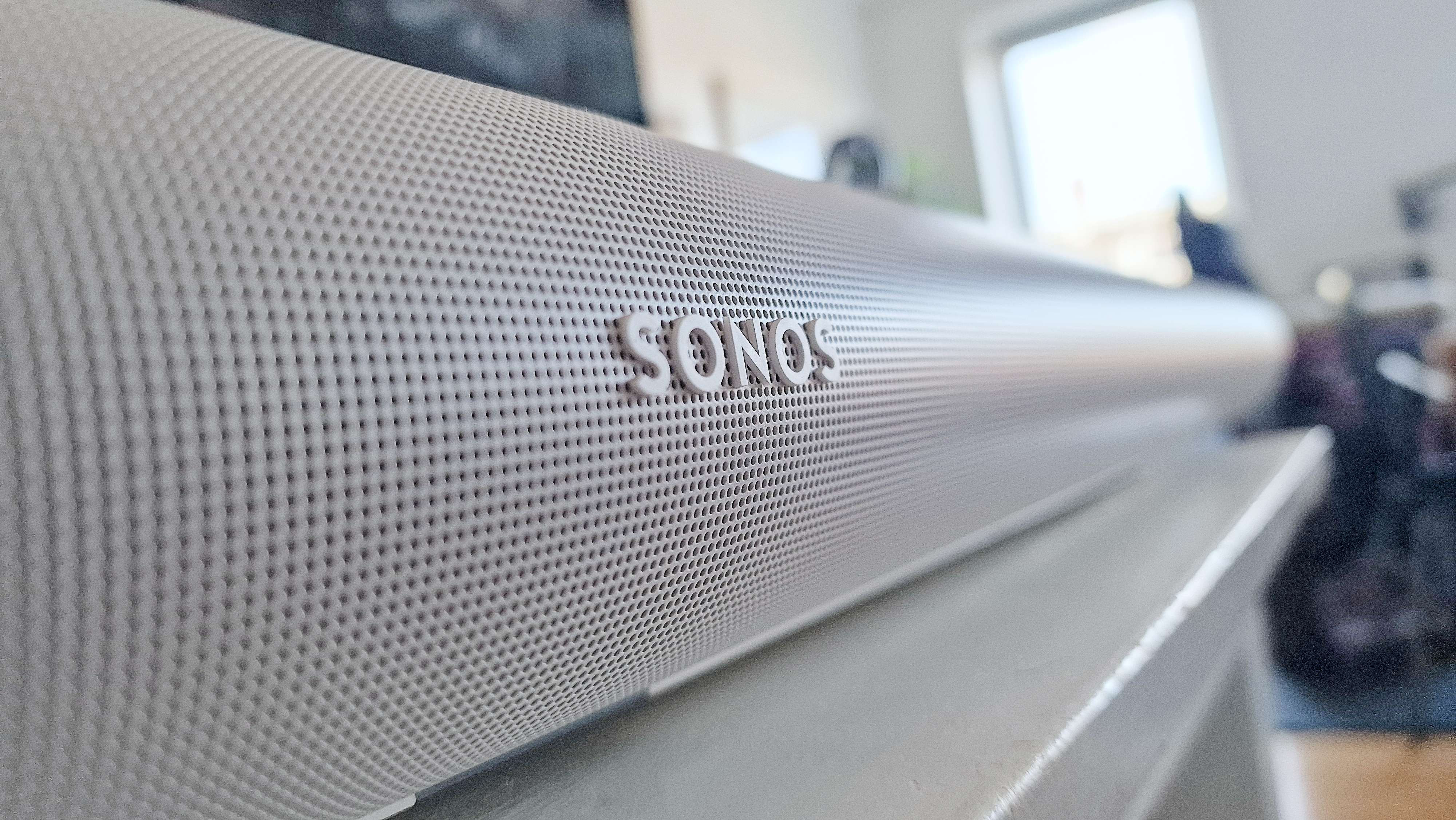
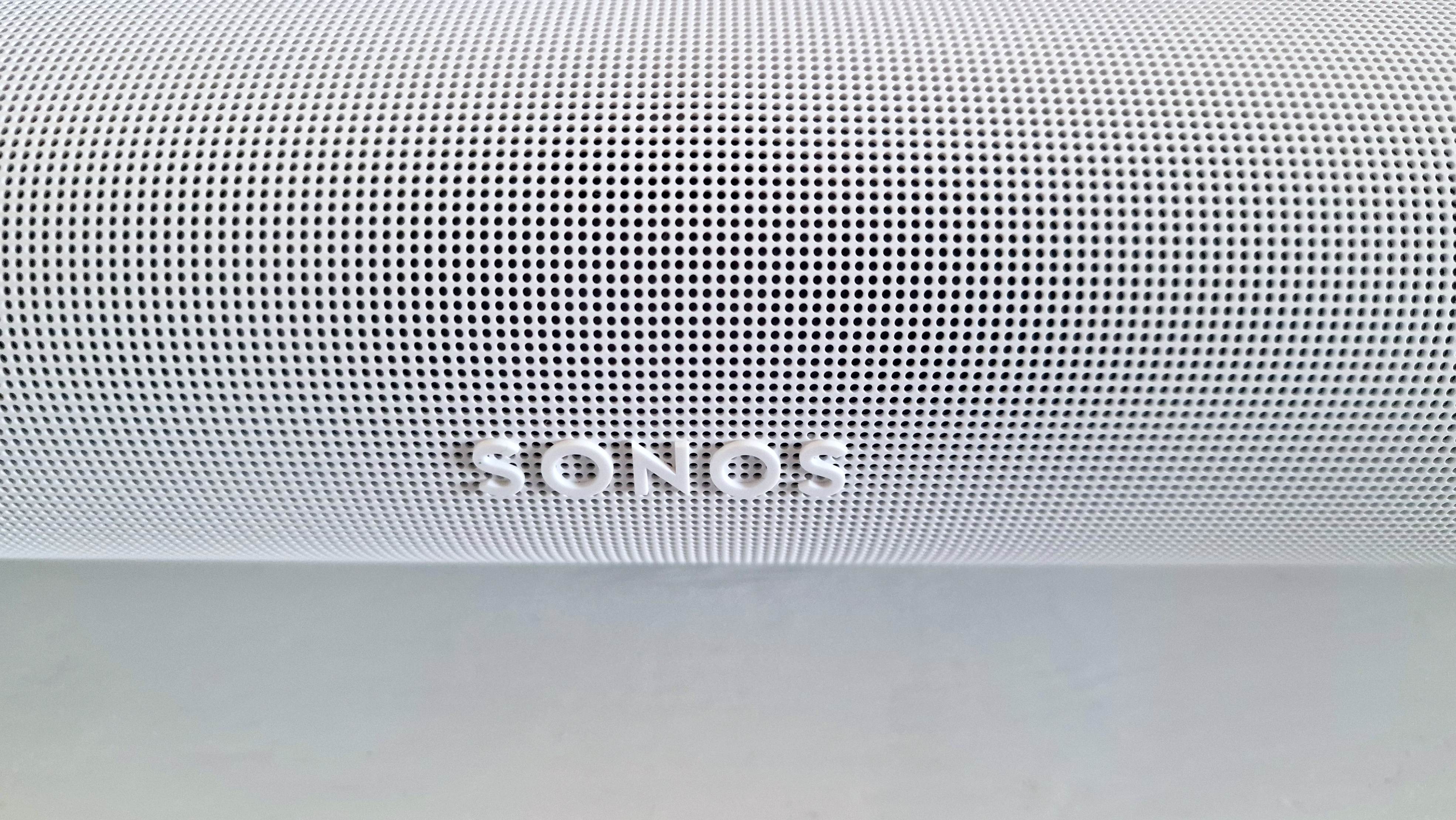
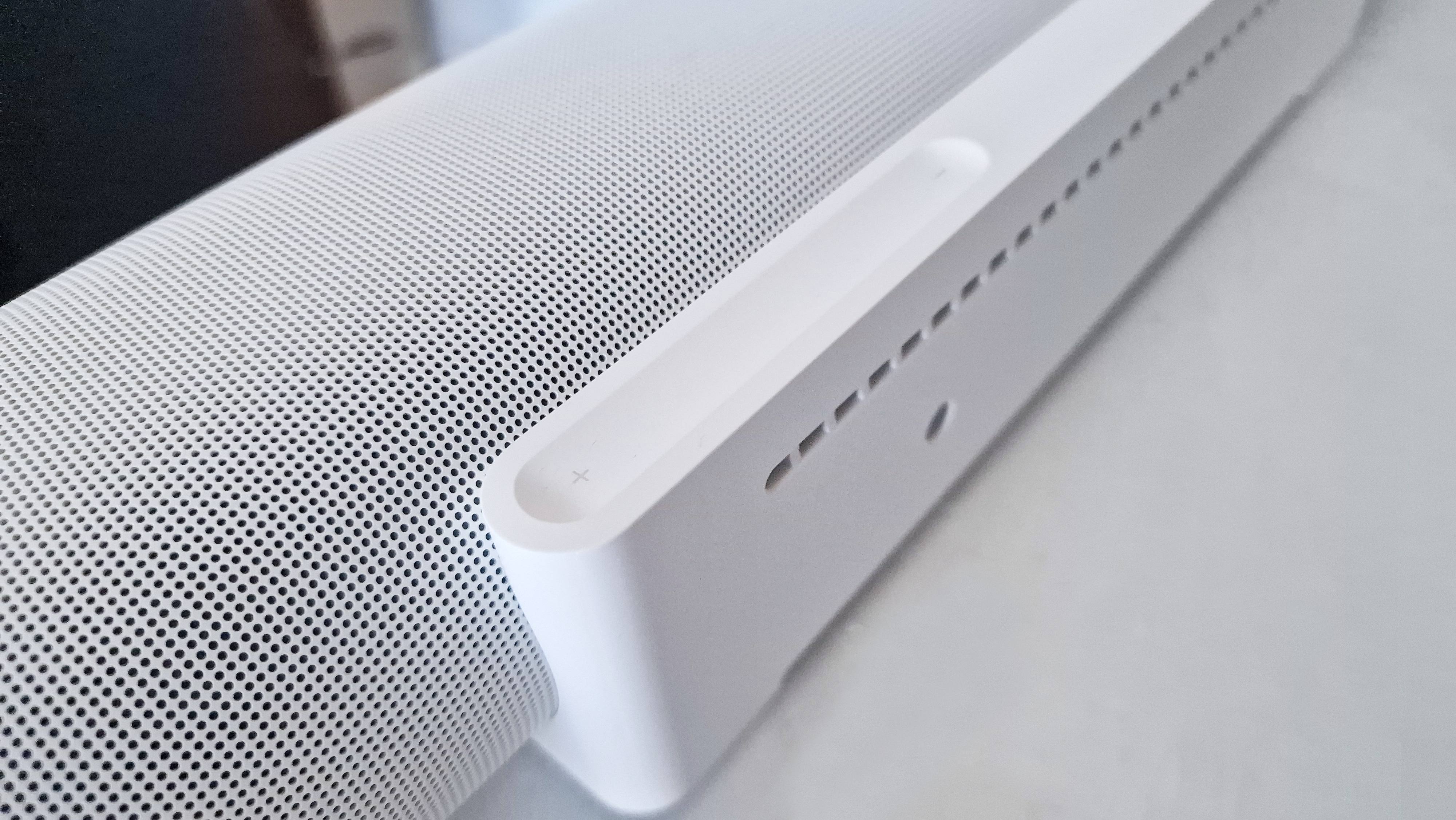
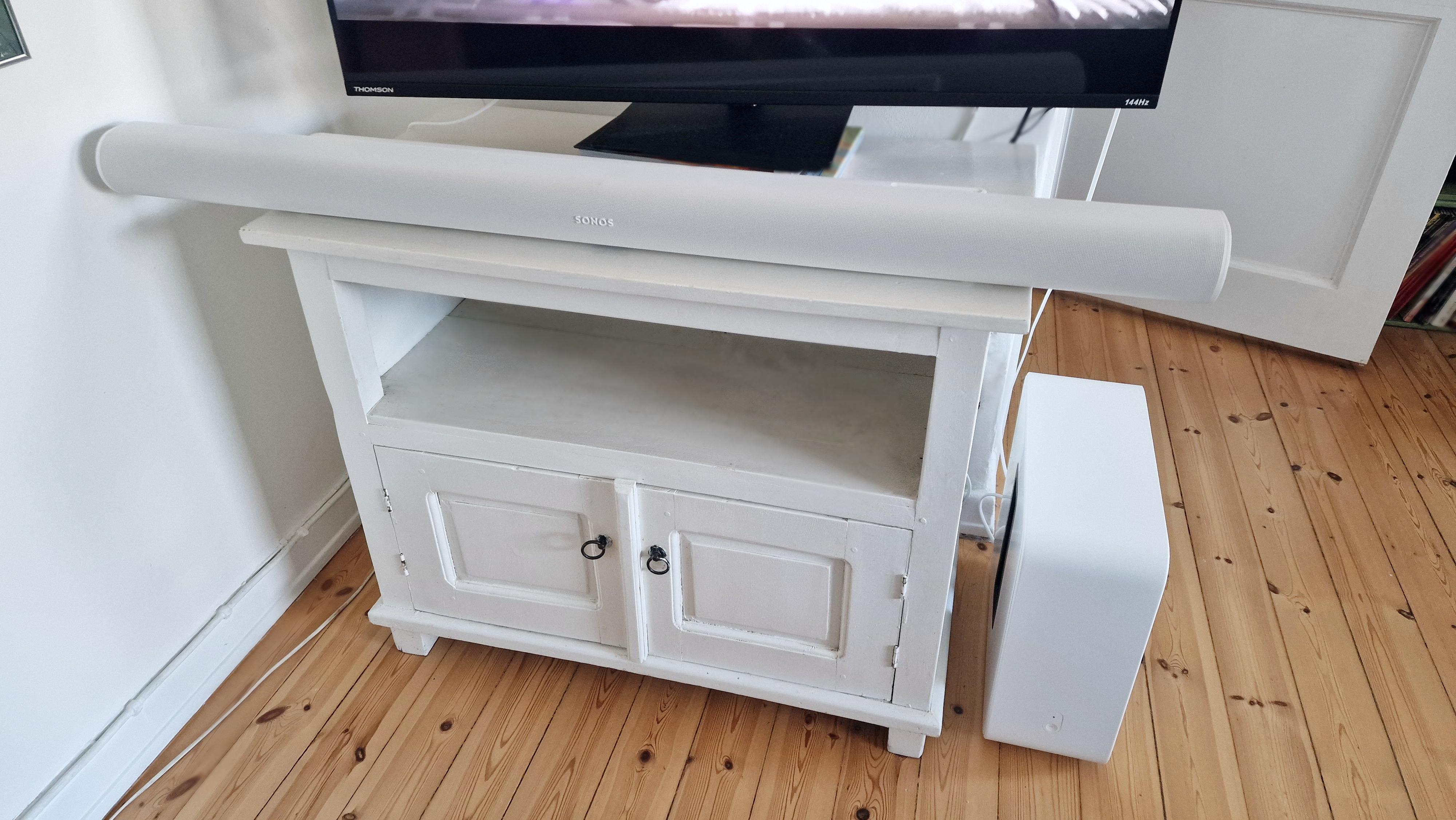
Specifications
Reasons to buy
Reasons to avoid
The best Sonos soundbar you can currently buy for sheer Dolby Atmos sound quality is the Sonos Arc Ultra – it's one of the best soundbars we've tested if it's Dolby Atmos you chiefly need.
The keen-eyed will note that the original Sonos Arc (which launched back in June 2020) gained an even-better 4.5-star review, while this newer October 2024 iteration has had to make do with four stars under intense review. So how come the newer 'Ultra' is still the one we'd nudge you towards? Allow us to break it down: the Arc Ultra is better for sound than the original Arc, without a shadow of a doubt. You'll get better Dolby Atmos effects, better low-end clout, better clarity in dialog and better connectivity. That is not in question. It's just that it has a few things missing from the feature list that were acceptable in 2020 for the original Arc, but seem a little harder to swallow in 2025. What are these missing things? Top of the list is the lack of any HDMI passthrough ports, in an age when all of the Arc Ultra's chief rivals (this is premium territory, as you know) are offering this. The omission of DTS on the spec-sheet is also a minor letdown, but we think it's less of a big deal.
We still emphatically recommend the Sonos Arc Ultra, especially if it has to be Sonos, we just need you to be aware of its limitations. To summarize: in this Sonos-only guide, it's by far the superior Dolby Atmos soundbar. Got it? Thank you for bearing with us.
Read our full Sonos Arc Ultra review
Premium and portable

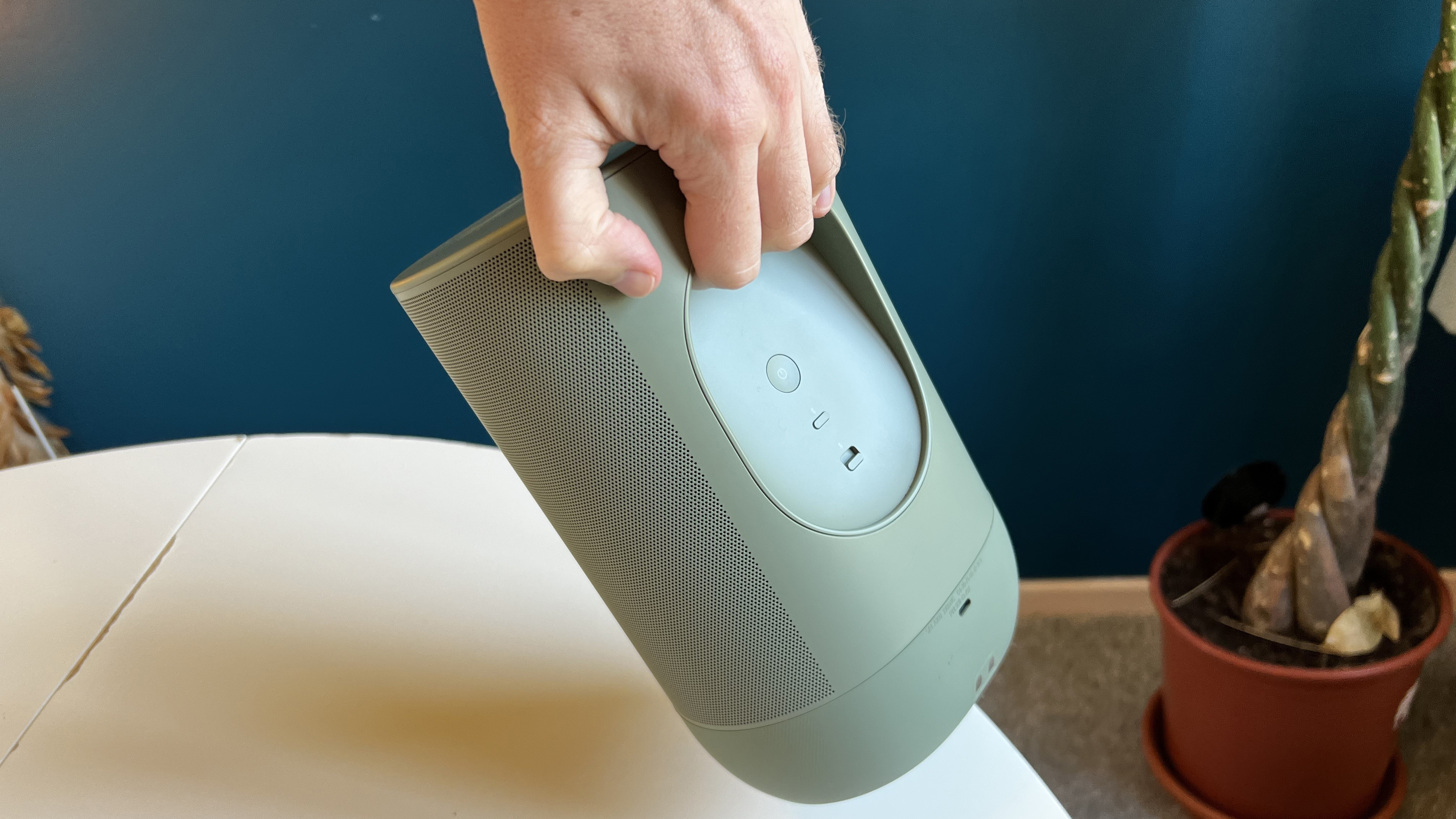
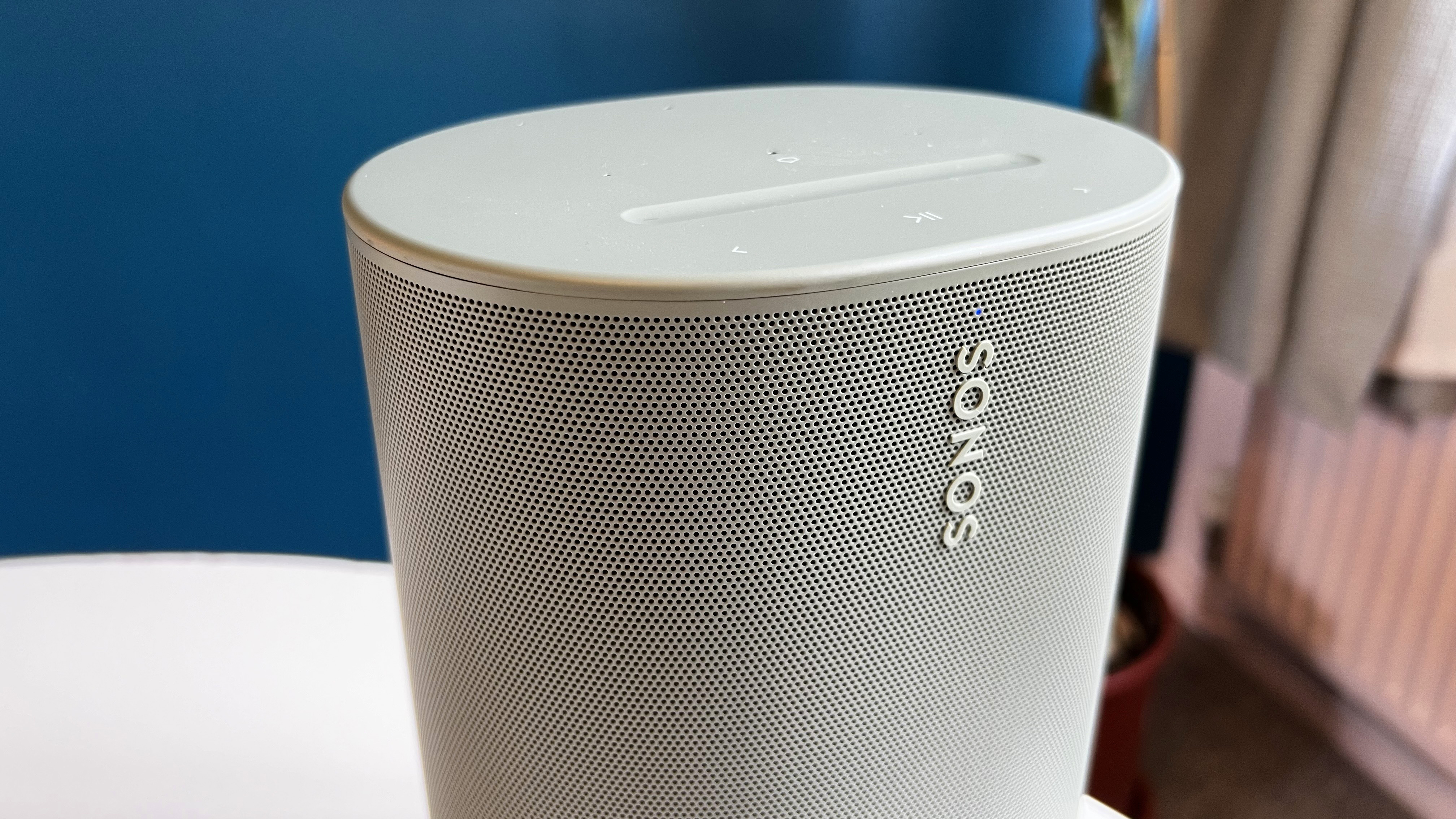
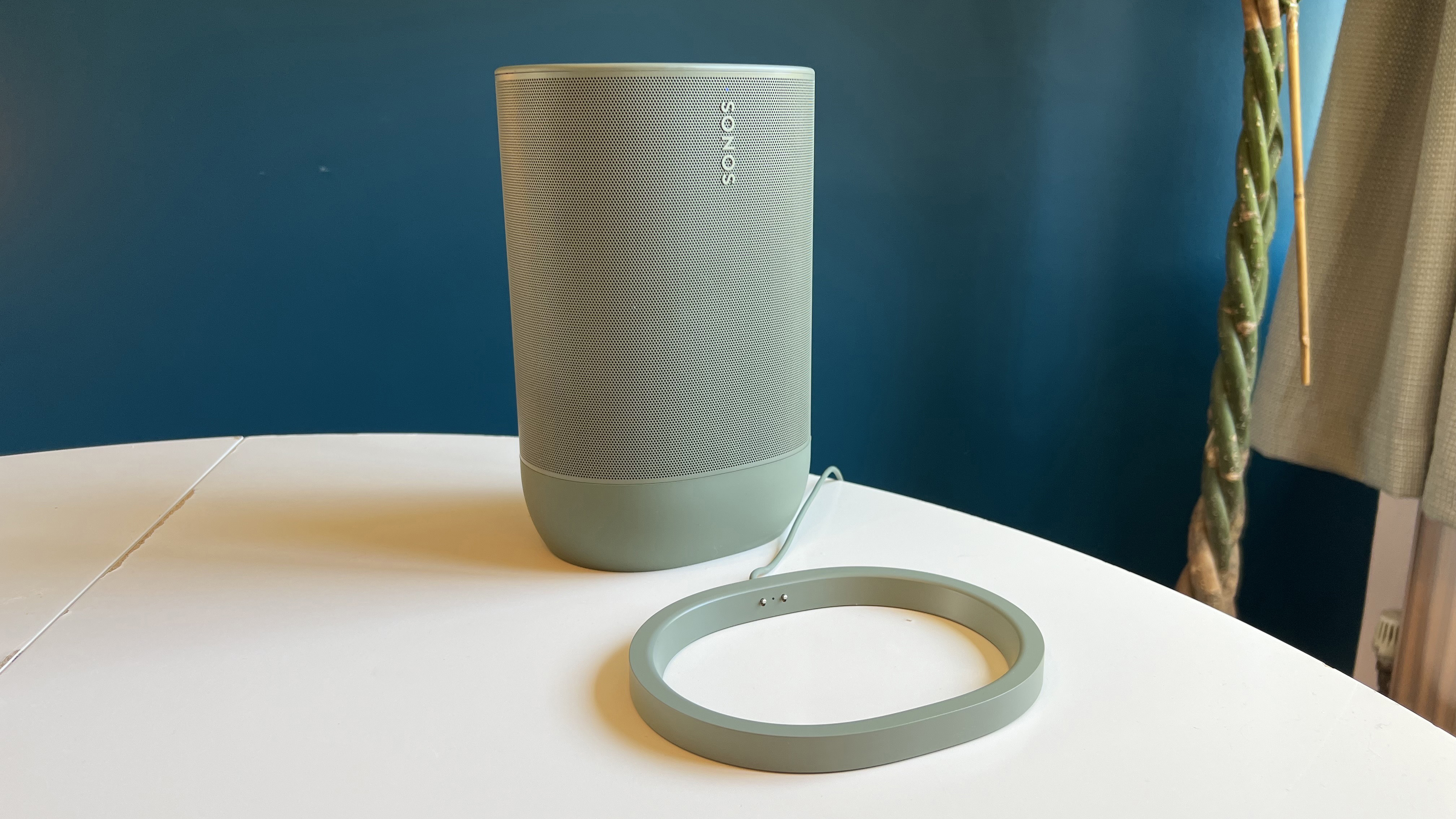
Specifications
Reasons to buy
Reasons to avoid
Where the Sonos Roam is optimized for using on the go, the Sonos Move 2 is a great Bluetooth speaker to use around the home and in your garden, packing a premium audio experience into a portable design.
With powerful speaker drivers, multi-room capabilities and smart audio-tuning tech that tweaks the output based on the speaker's immediate surroundings, the Sonos Move is engineered better than your average Bluetooth speaker. It's a versatile speaker, one that stands solidly alongside the built-for-home Sonos speakers that the company made its name on.
It’s not perfect – it’s heavy as a byproduct of its incredible sound, and it’s expensive due to its rich feature set. But if you’ve got the money, it’s hard to fault the Sonos Move 2 when it comes to providing loud and classy sound wherever you can carry it.
Read our full Sonos Move 2 review
The best for hi-fi sound
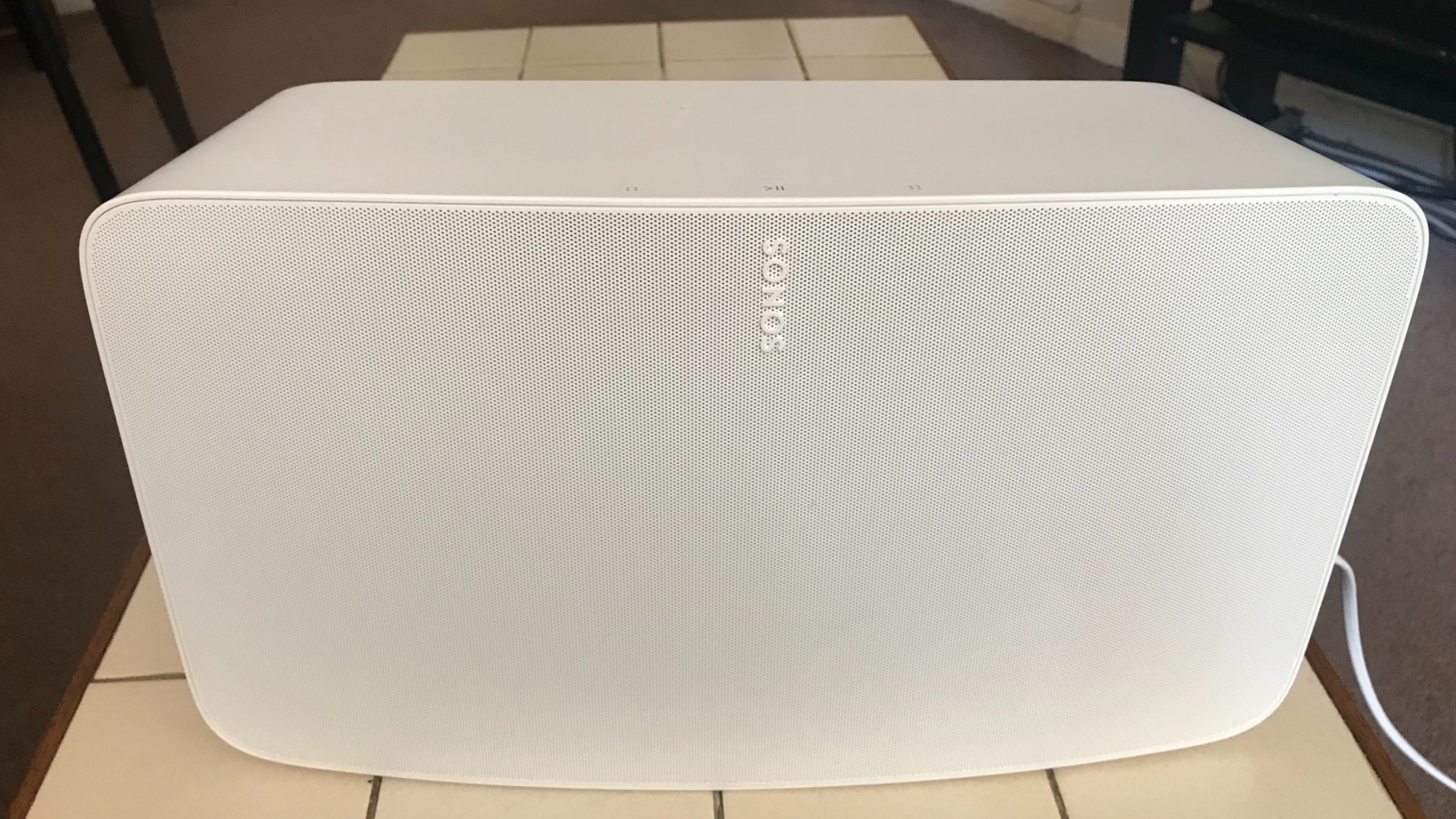
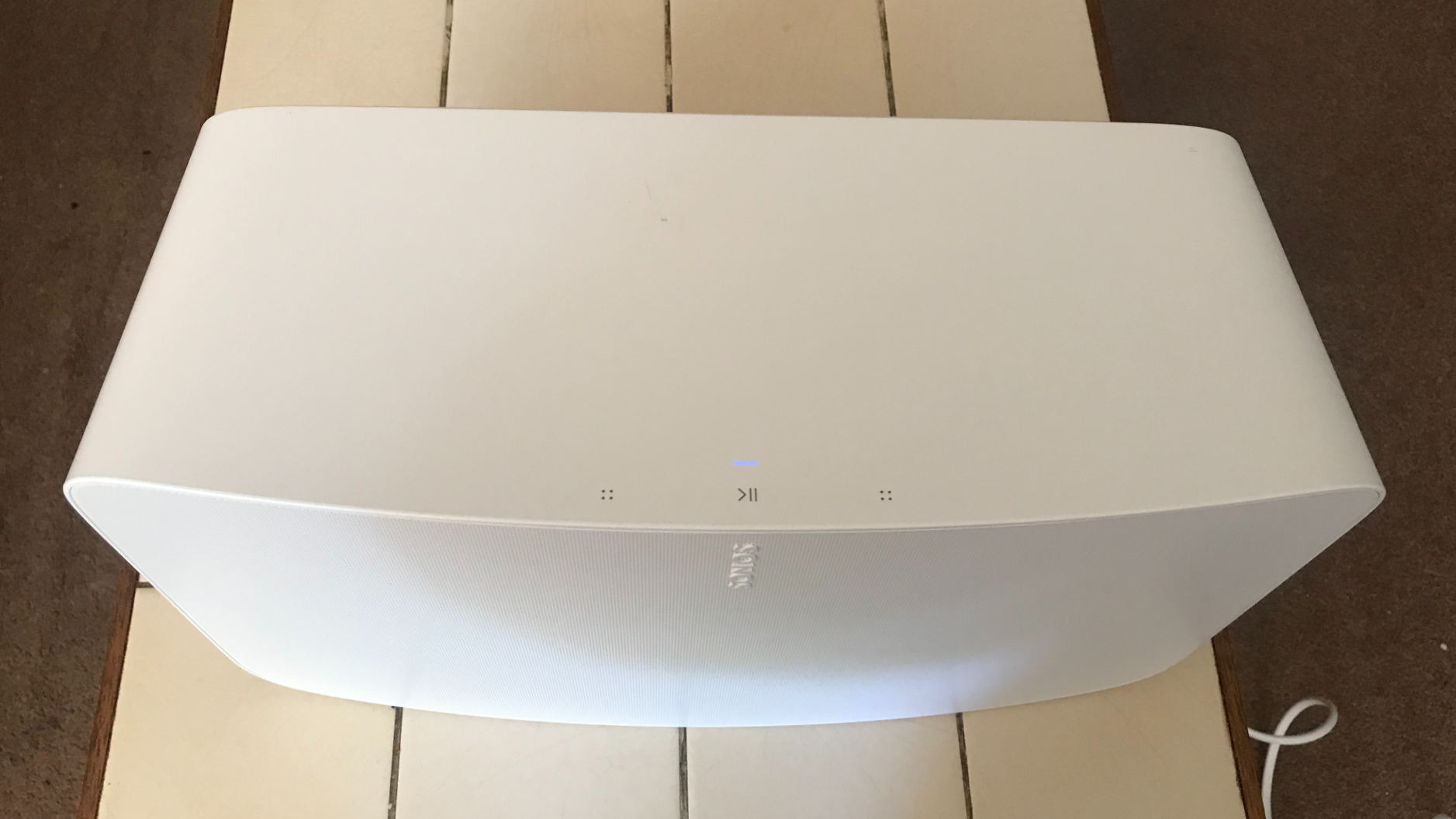
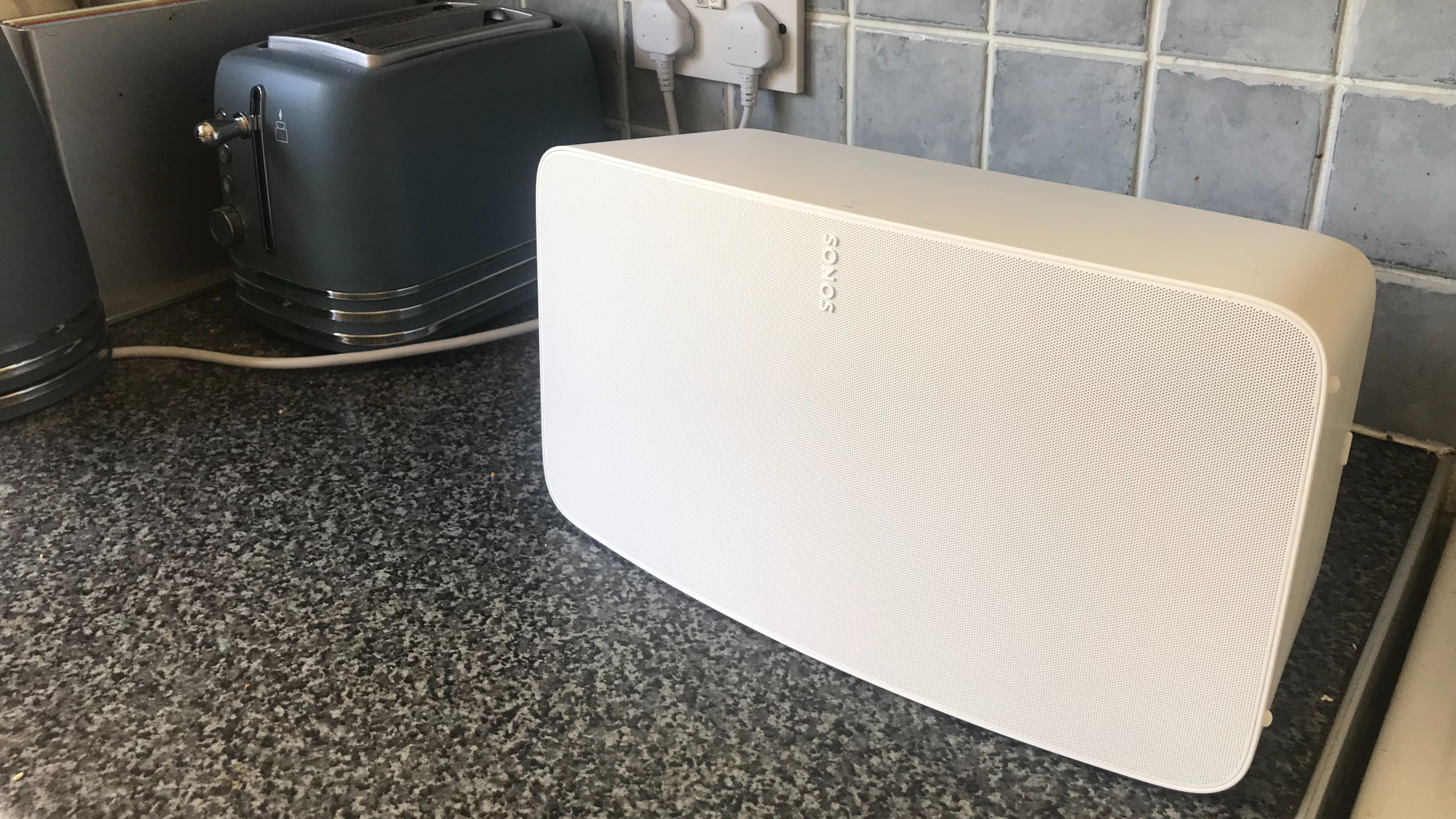
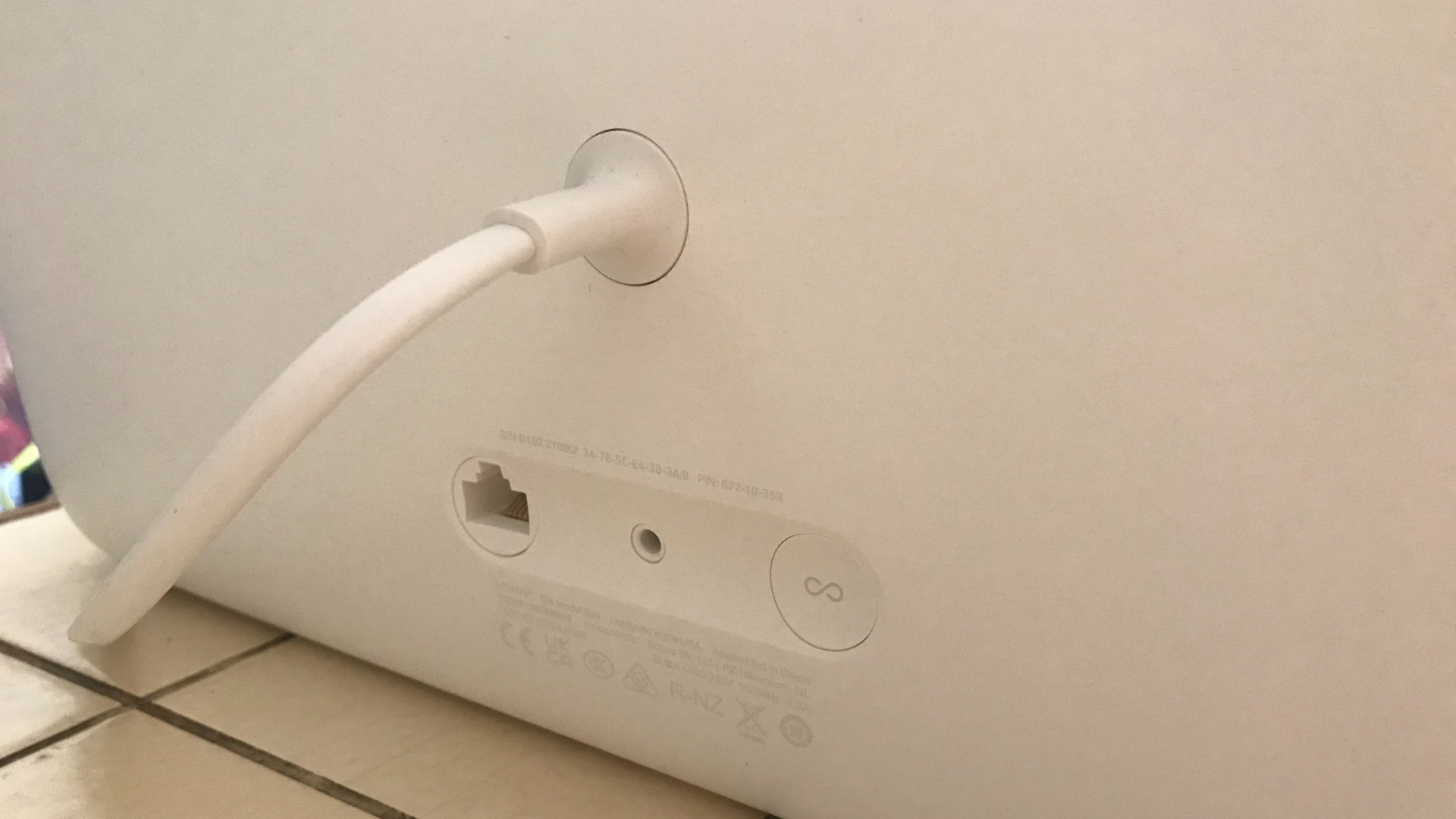
Specifications
Reasons to buy
Reasons to avoid
When the Sonos Era 300 was first rumored to be coming soon, we assumed it would replace the Sonos Five. Now the Era 300 is out we know that isn't the case. The Sonos Five is still the biggest option from Sonos and one we'd suggest you consider if you're looking for hi-fi power over the Era 300's spatial audio precision.
It's a large and bulky speaker as far as Sonos tech goes. It doesn't support spatial audio but is designed for stereo output instead. It has a 3.5mm line-in and supports external devices, like turntables.
There's Apple AirPlay 2 with the Five, but no Bluetooth. You also won't find microphones or voice controls – but you can connect it up to another Sonos speaker with a mic and control it that way.
Sound-wise it gets loud, really loud, without going too bass-heavy. There's an impressive soundstage too and clear, defined vocals.
If you want the best speaker for your home, we'd recommend the newer Sonos Era 300 over the Sonos Five. It has Bluetooth connectivity, spatial audio and is smaller and lighter than the Five. But if spatial audio isn't a deal-breaker for you and you want loud, detailed and powerful sound, it's an older but good option.
Read our full Sonos Five review
The best cheap soundbar
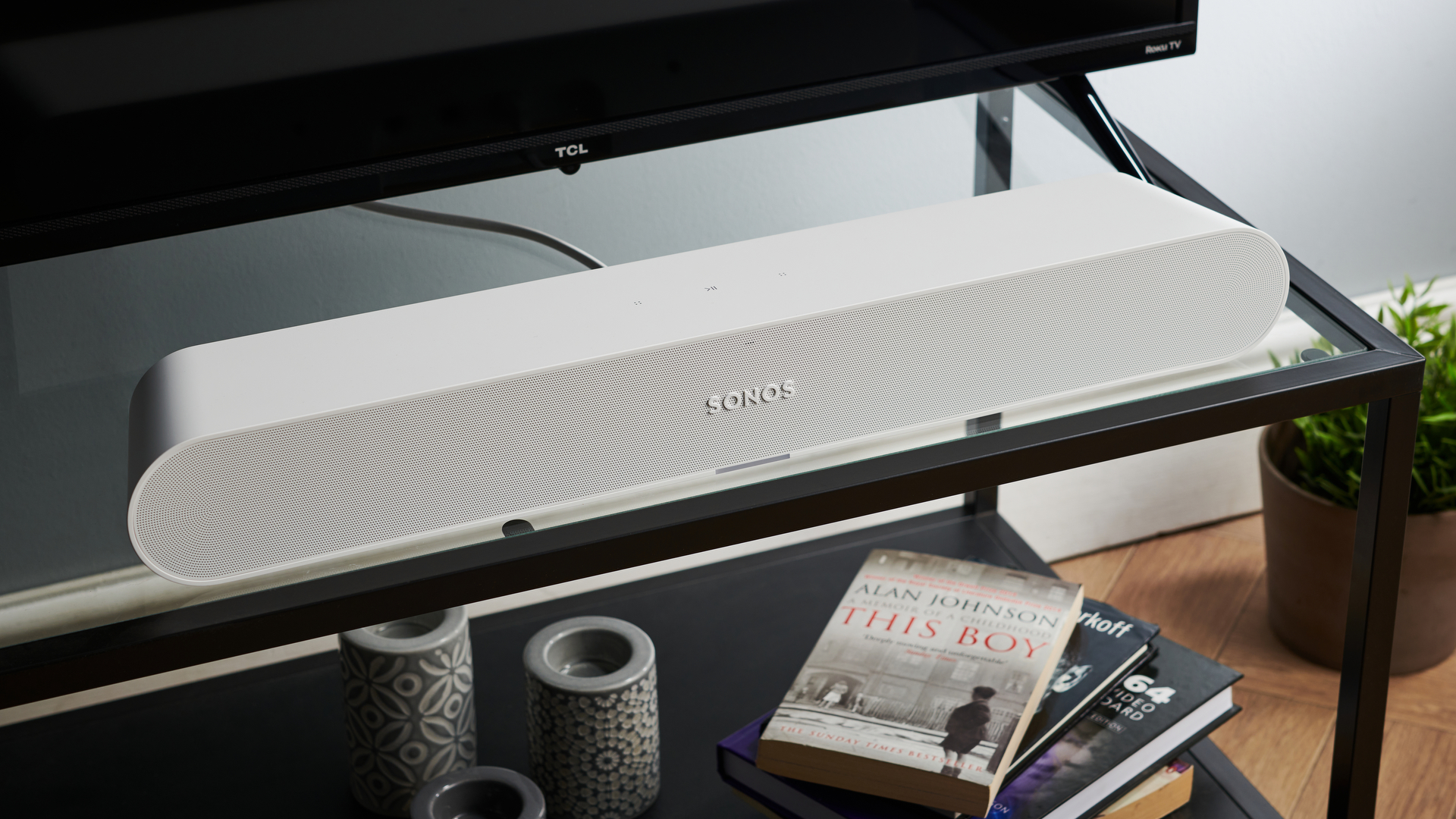
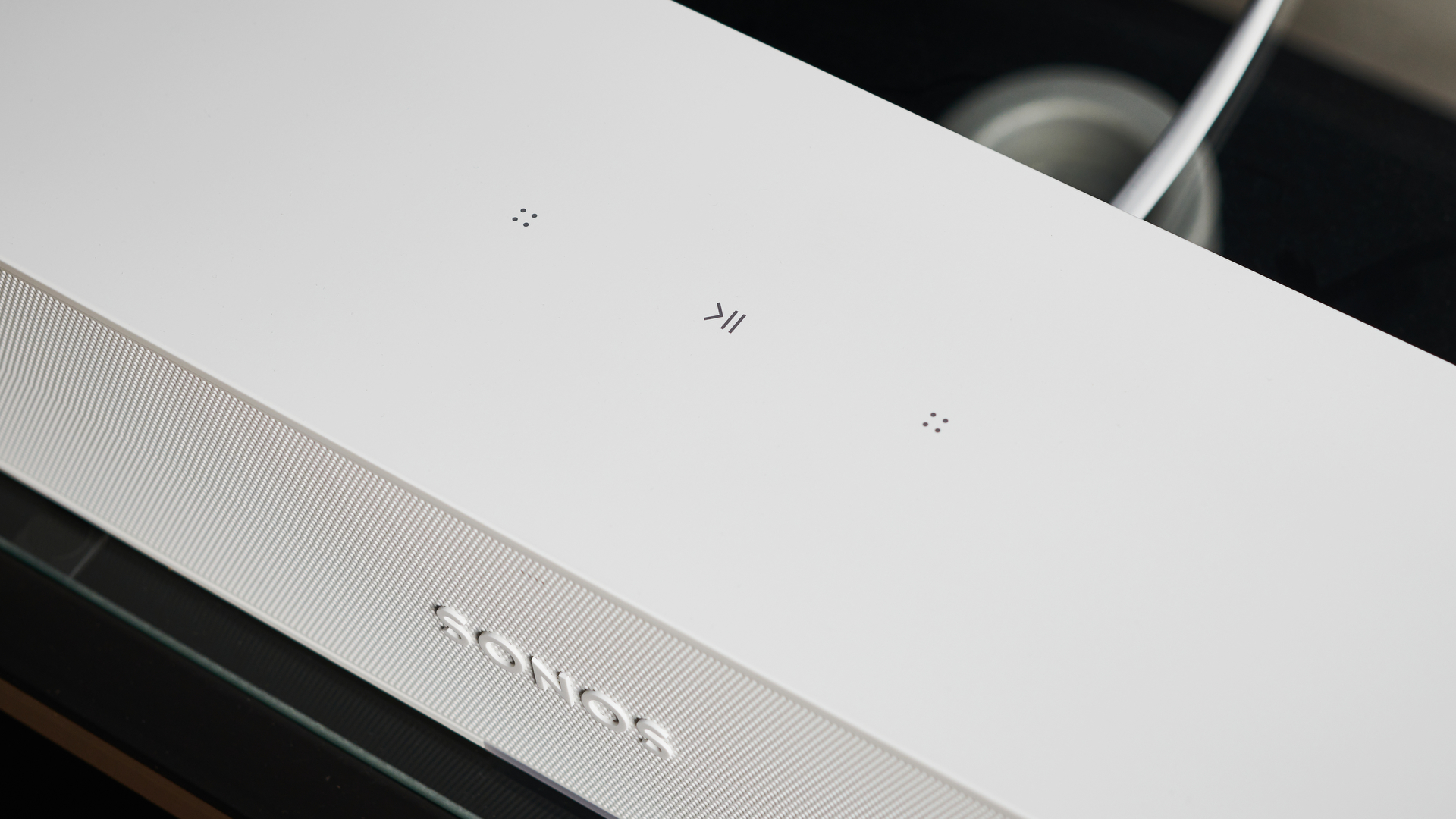
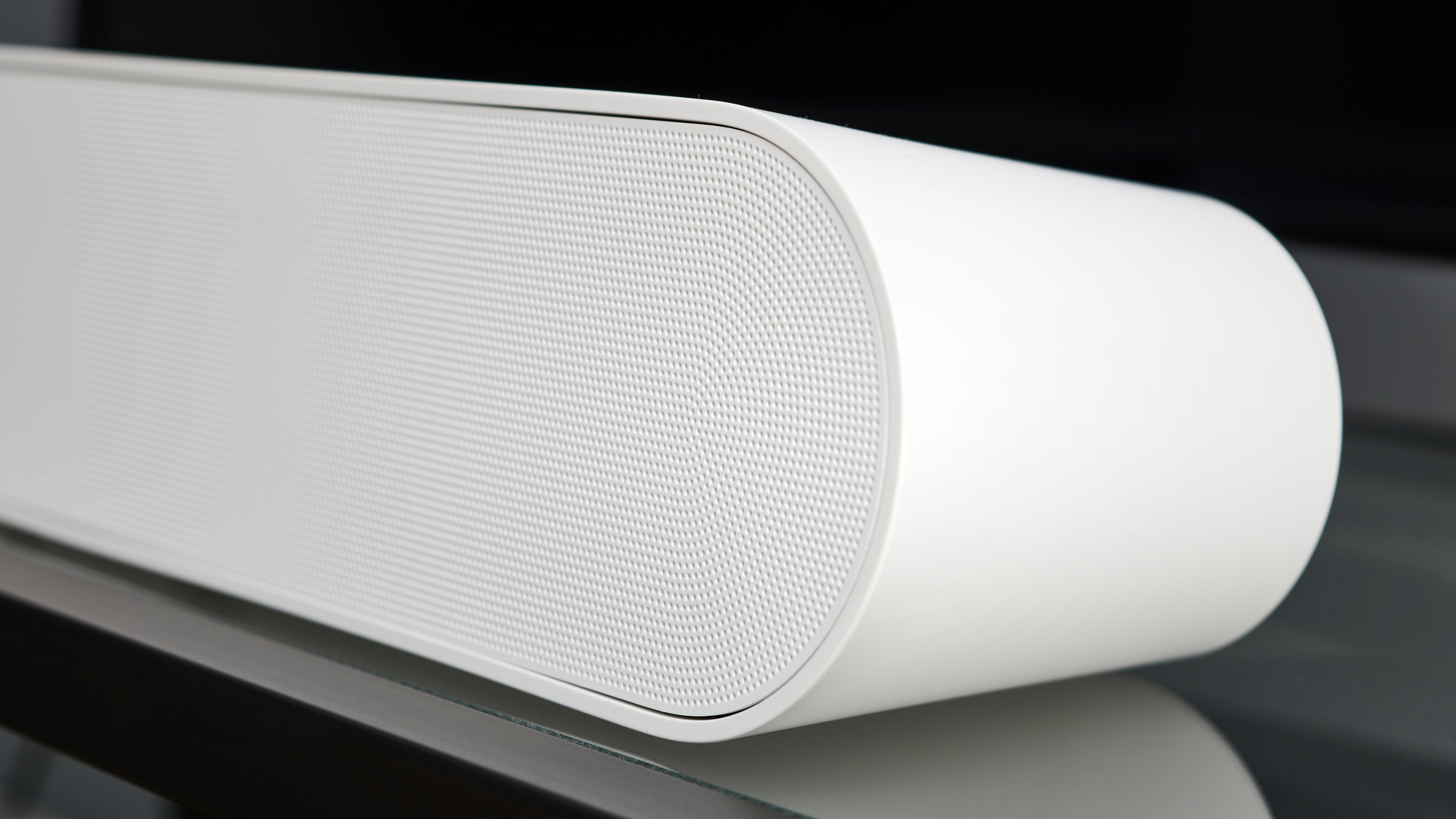
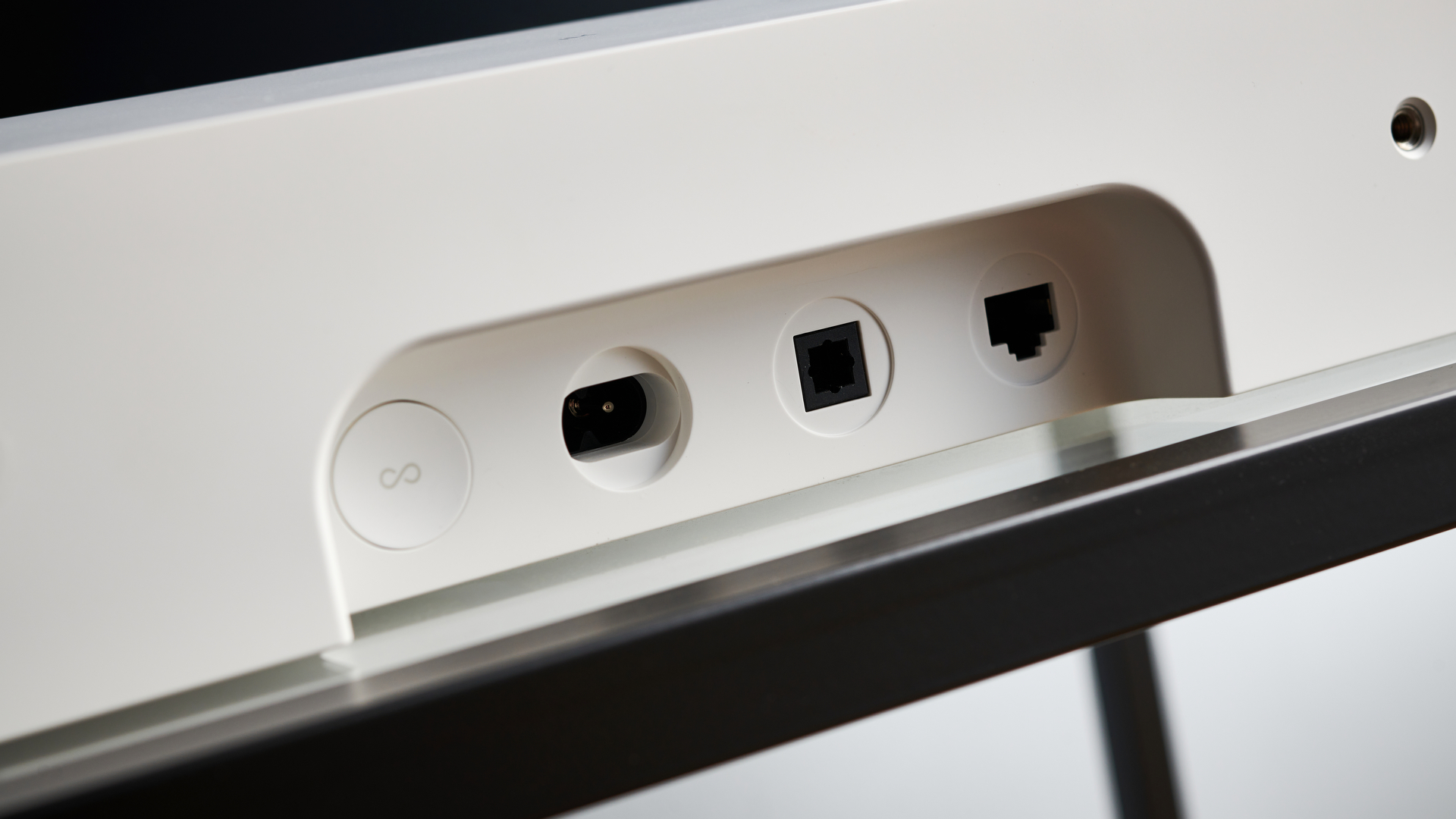
Specifications
Reasons to buy
Reasons to avoid
The Sonos Ray is the cheapest Sonos soundbar in Sonos' range. Yes, it's lacking a few features to allow the drop in price and it's in an even smaller and more room-friendly frame then the Beam.
Don't expect the Sonos Ray to compete with the best soundbars on the market. Instead, it's for those who want to boost their TV's audio and hear better vocals and more details rather than experience big Dolby Atmos sound in a home theater setup.
In our review we said that we were impressed a device so small could put on "a pretty stunning amount of sound, balancing weighty bass with detail in speech." This was the case whether it was paired with a small TV up to a medium-sized 50-inch display. It doesn't use an HDMI ARC port to get the sound from your TV but an included optical cable instead. This is good in that optical works with basically any TV. It's great with music too, and has Sonos' full multi-room streaming tech built-in.
Although the Sonos Ray is cheap by Sonos standards, you will find soundbars that offer similar quality at lower prices. But many of them are physically bigger and it's the compact size of the Ray that's a draw.
Read our full Sonos Ray review
Also consider these options
Sonos Arc: although it's been replaced in this guide with the newer Arc Ultra, that doesn't mean we don't still rate the original Dolby Atmos Arc. Our Sonos Arc review reveals a fine soundbar – especially if you can find a deal on it – but do note that if those 'last chance' banners on its Sonos listing are anything to go on (and they usually are) Sonos could be discontinuing it very soon…
Sonos One: The Sonos One is still a great speaker. But only if you can find one, as this model has now been discontinued. Take a look at our Sonos One review to find out why we still recommend it years later.
Sonos One SL: If you want a pair of rear speakers to pair with a Sonos soundbar, you should take a look at our full Sonos One SL review. This speaker has all the specs of the Sonos One sans the inbuilt voice assistant, so you don't have to worry about Alexa or Google Assistant listening in on your conversations. It's also a little cheaper than the Sonos One – but again, has now been discontinued.
Sonos Sub and Sonos Sub Mini: Another great addition to a Sonos home cinema setup is the Sonos Sub, a wireless subwoofer that will boost the bass of the rest of your setup. Inside the glossy cabinet are two force-cancelling speakers positioned face to face to avoid cabinet buzz, dual acoustic ports and two Class-D digital amplifiers specially tuned for the hardware. And definitely take a look at our Sonos Sub Mini review if you want a cheaper and smaller bass option – we've tested the Sub Mini with all three Sonos soundbars.
Sonos Amp: Want to create a proper surround sound system? Check out our Sonos Amp review. This is the brand's wireless music streaming amplifier. This versatile device lets you wirelessly connect two speakers to your TV for stereo sound, or power two standard, passive speakers of your choosing. You can even add in a second Amp for a four-speaker setup. The latter is actually the better choice, sonically speaking, as it enables you to create a system using four identical speakers, or at least four from the same range. That will make for a far more consistent surround sound presentation than mixing traditional hi-fi speakers and Sonos’s wireless speakers – plus, it means you can use your existing stereo speakers instead of shelling out for a new pair. And yes, we really are talking four-speaker systems here: the Amp is designed to work without a dedicated center channel. Instead, it creates a so-called ‘phantom’ center through clever processing.
Sonos Ace: Sonos' first headphones. In our Sonos Ace review, we dig into all the ways these over-ear headphones do (and don't) work with your other Sonos hardware.
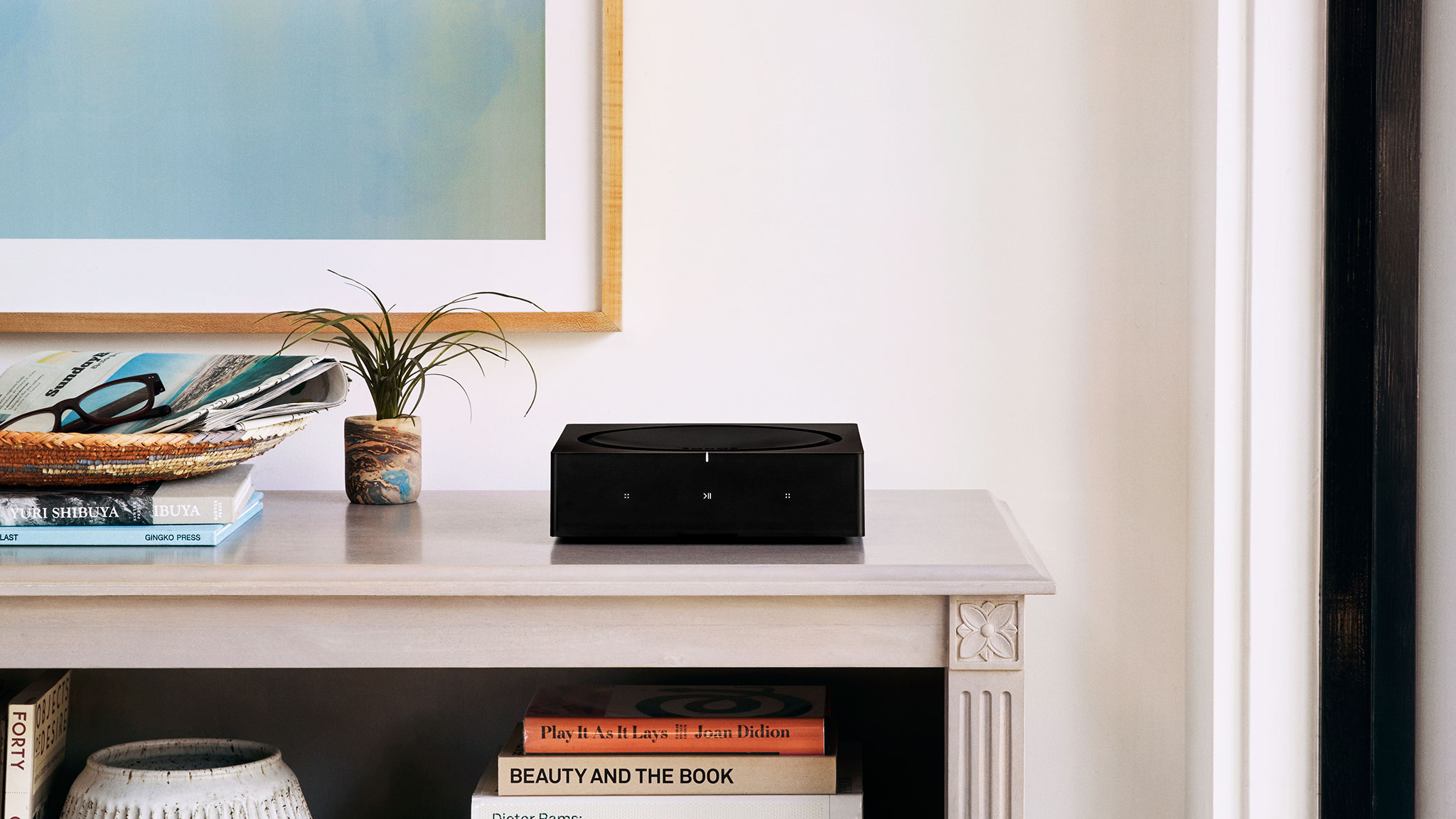
Best Sonos speakers: FAQ
How much do Sonos speakers cost?
Sonos speakers tend to be fairly priced and good value. However, Sonos does sometimes increase its prices and certainly isn't considered a budget brand. Here's how the prices of its best soundbars and speakers stack up:
Sonos Era 100: $249 / £249 / AU$399
Sonos Roam 2: $179 / £179 / AU$299
Sonos Beam (Gen 2): $449 / £449 / AU$699
Sonos Era 300: $449 / £449 / AU$749
Sonos Arc: $899 / £899 / AU$1,499 ($899, AU$1499)
Sonos Move 2: $449 / £449 / AU$799
Sonos Five: $549 / £499 / AU$799
Sonos Ray: $279 / £279 / AU$399
How do Sonos speakers work?
Sonos speakers all work together within a wider ecosystem, and each device is controllable via the brand’s S2 app. The app lets you add and remove Sonos devices from your setup as you please, while making it easy to adjust your music playback and stream content from your phone.
This means you can make your wireless Sonos setup as big or as small as you want. Pretty much any configuration you can think of is possible, from multiroom audio systems with speakers built into your ceilings to modest home cinema solutions with soundbars and rear stereo speakers.
Which Sonos speaker should I buy?
If you're looking for an easy way to play your music, the Sonos One wireless speaker will do the job if you can find one. But it's now discontinued.
Those with audiophile tendencies may want to try the Sonos Amp with two stereo speakers (Sonos or otherwise) or the newer Sonos Era 100 and Sonos Era 300 with spatial audio.
For music on the go, check out the brand's portable Bluetooth speakers, the Sonos Move 2 and the Sonos Roam. Or, if you want to boost your home theater setup, the Sonos Arc, Sonos Beam (Gen 2) and Sonos Ray will sound far more powerful than your TV’s built-in speakers.
From there, you could expand your system to include a couple of Sonos One SLs as rear speakers, and a Sonos Sub to emphasize the bass frequencies.
Can I use Sonos speakers with an Android device?
You can, but with most Sonos speakers you'll miss out on one of the Sonos ecosystem's best features: TruePlay. The room calibration feature tunes the sound of Sonos speakers to the dimensions of your room. With most Sonos speakers, it only works with iOS devices. You could always borrow a friend's iPhone to setup your new Sonos speaker, though.
This problem is also solved with the newer Sonos Era 100 and Era 300 speakers, which have TruePlay customization on the speakers themselves, so you don't need another device to set it up.
How we test Sonos speakers
We've tested a range of Sonos speakers over the years, so you can be sure that the models in this guide have been thoroughly vetted by the TechRadar team.
Testing how well a Sonos speaker works in the company's ecosystem is just as important as testing how it sounds, which is why we always test Sonos speakers within an existing setup. For instance, alongside a Sonos Arc and a Sonos Sub.
We use a number of audio sources and music genres during the testing process to build a full picture of a speaker's sound profile, from hi-res audio files to streaming Spotify over Bluetooth.
For portable speakers, like the Sonos Move 2 and Sonos Roam, we also run down the battery life of these speakers to see if they match up to the manufacturer's claims, and use them in a range of environments to make sure they can withstand outdoor conditions.
Get daily insight, inspiration and deals in your inbox
Sign up for breaking news, reviews, opinion, top tech deals, and more.

Matt is TechRadar's Managing Editor for Entertainment, meaning he's in charge of persuading our team of writers and reviewers to watch the latest TV shows and movies on gorgeous TVs and listen to fantastic speakers and headphones. It's a tough task, as you can imagine. Matt has over a decade of experience in tech publishing, and previously ran the TV & audio coverage for our colleagues at T3.com, and before that he edited T3 magazine. During his career, he's also contributed to places as varied as Creative Bloq, PC Gamer, PetsRadar, MacLife, and Edge. TV and movie nerdism is his speciality, and he goes to the cinema three times a week. He's always happy to explain the virtues of Dolby Vision over a drink, but he might need to use props, like he's explaining the offside rule.
- Becky ScarrottAudio Editor
- Becca Caddy